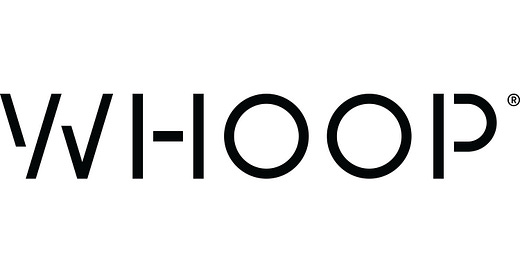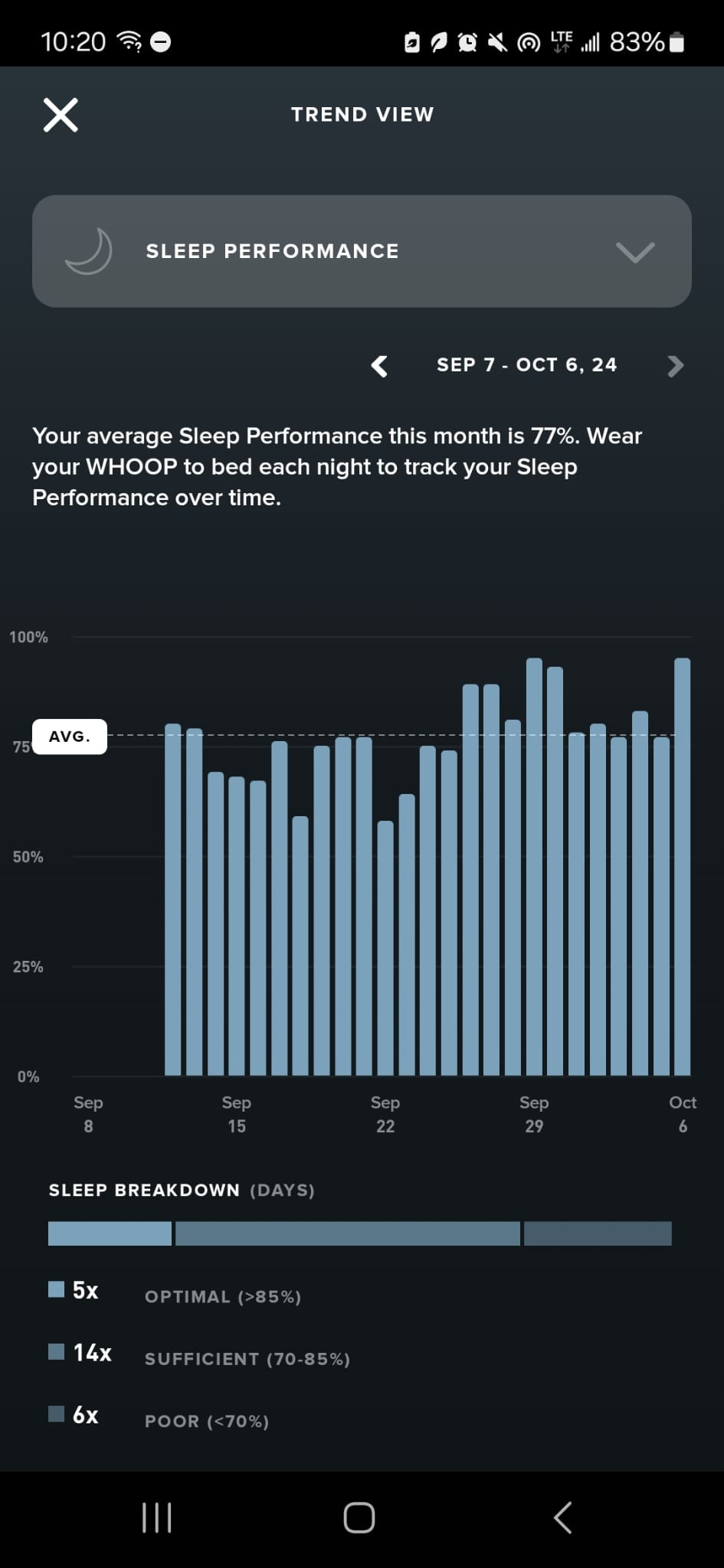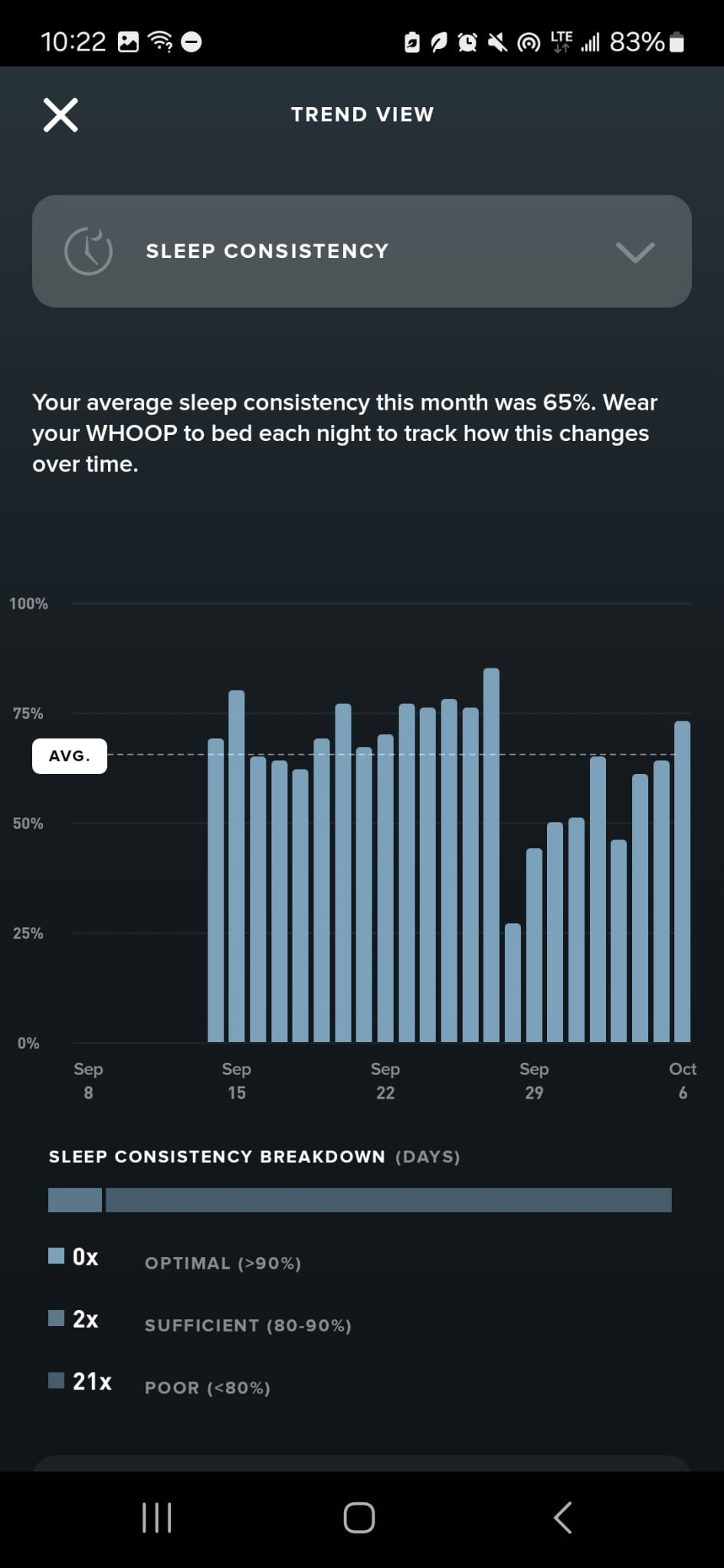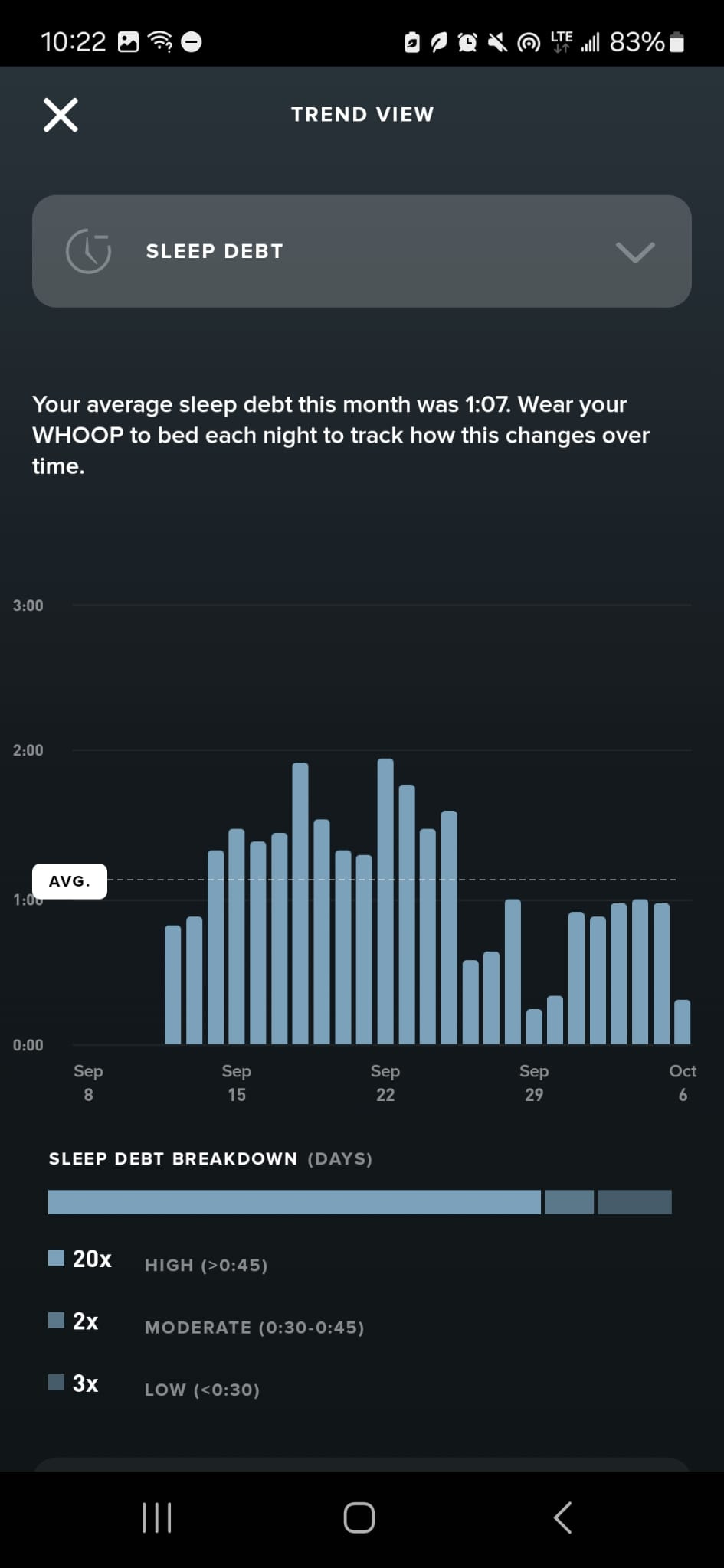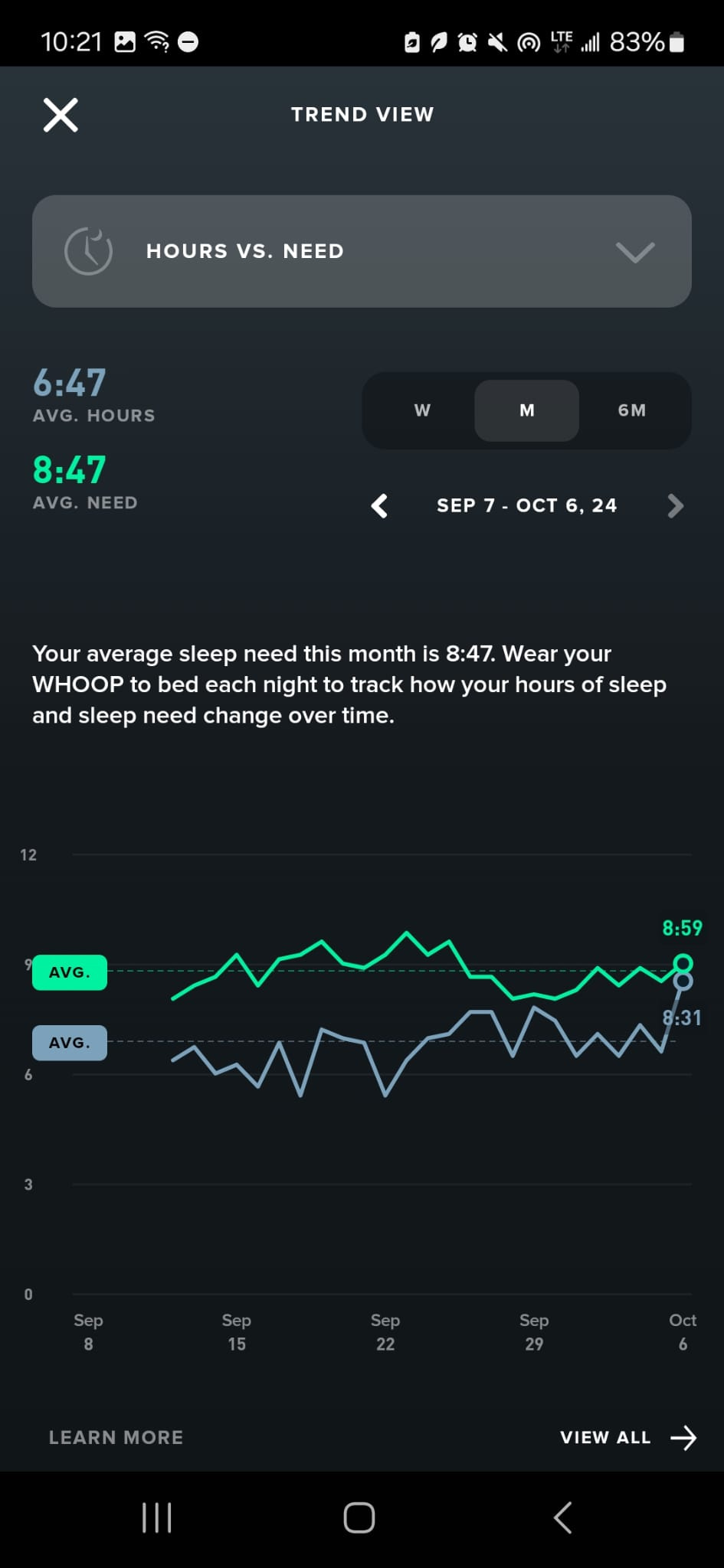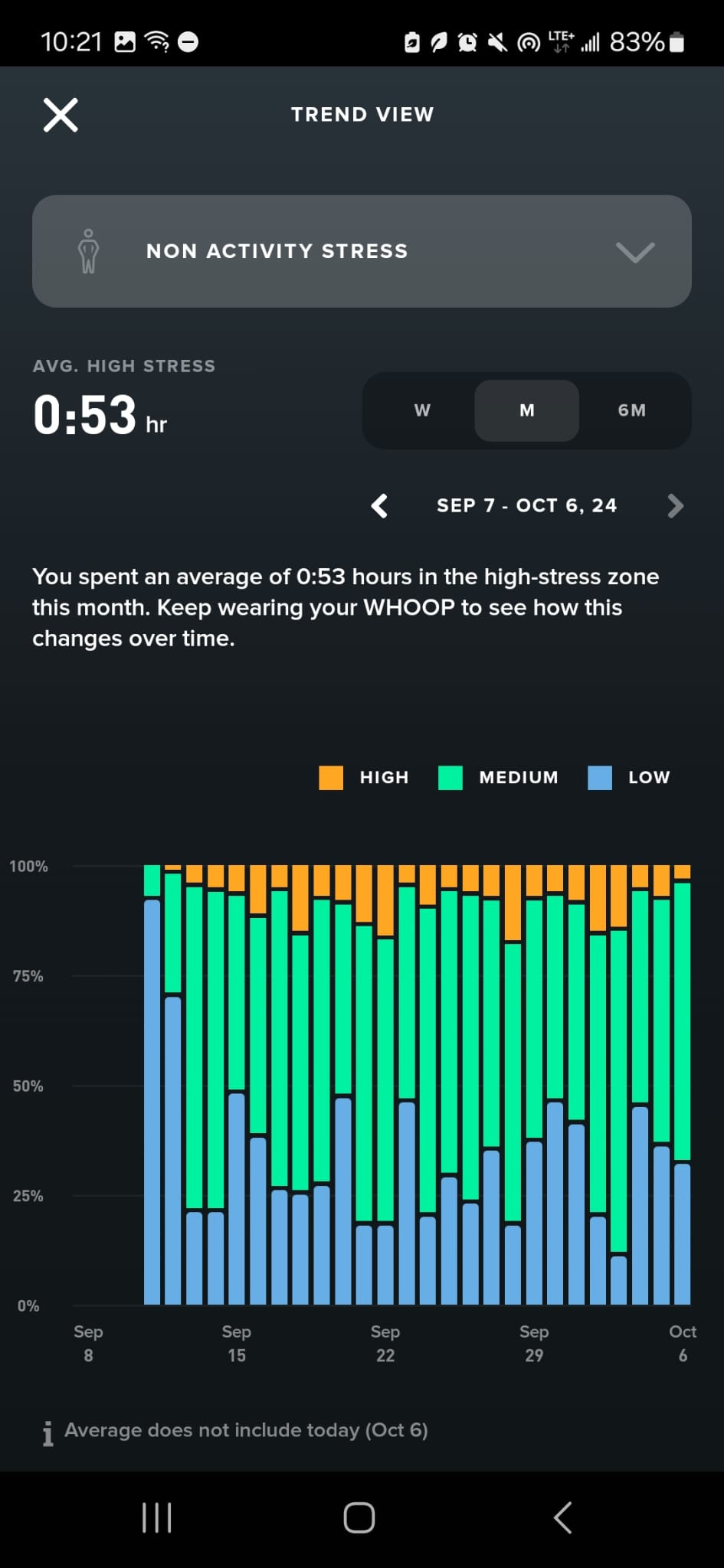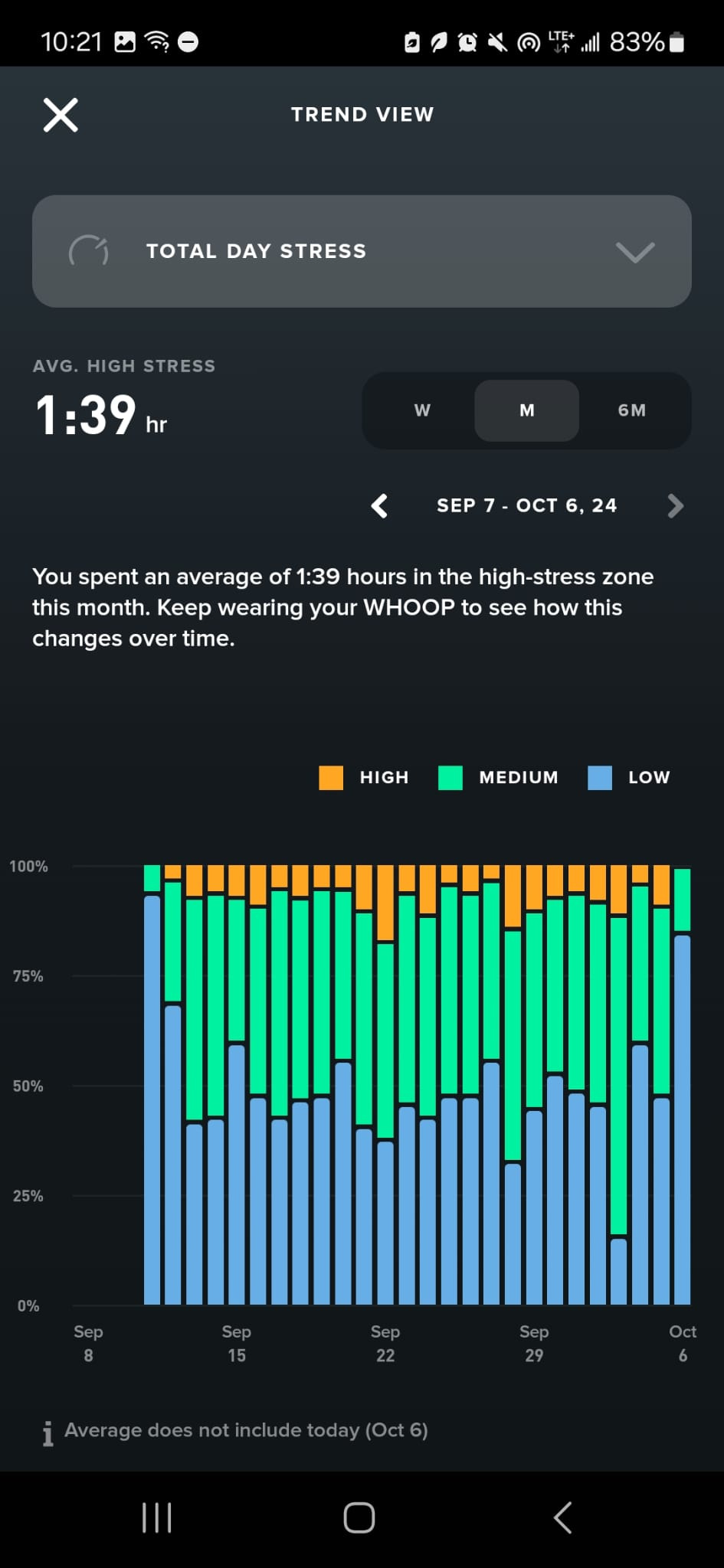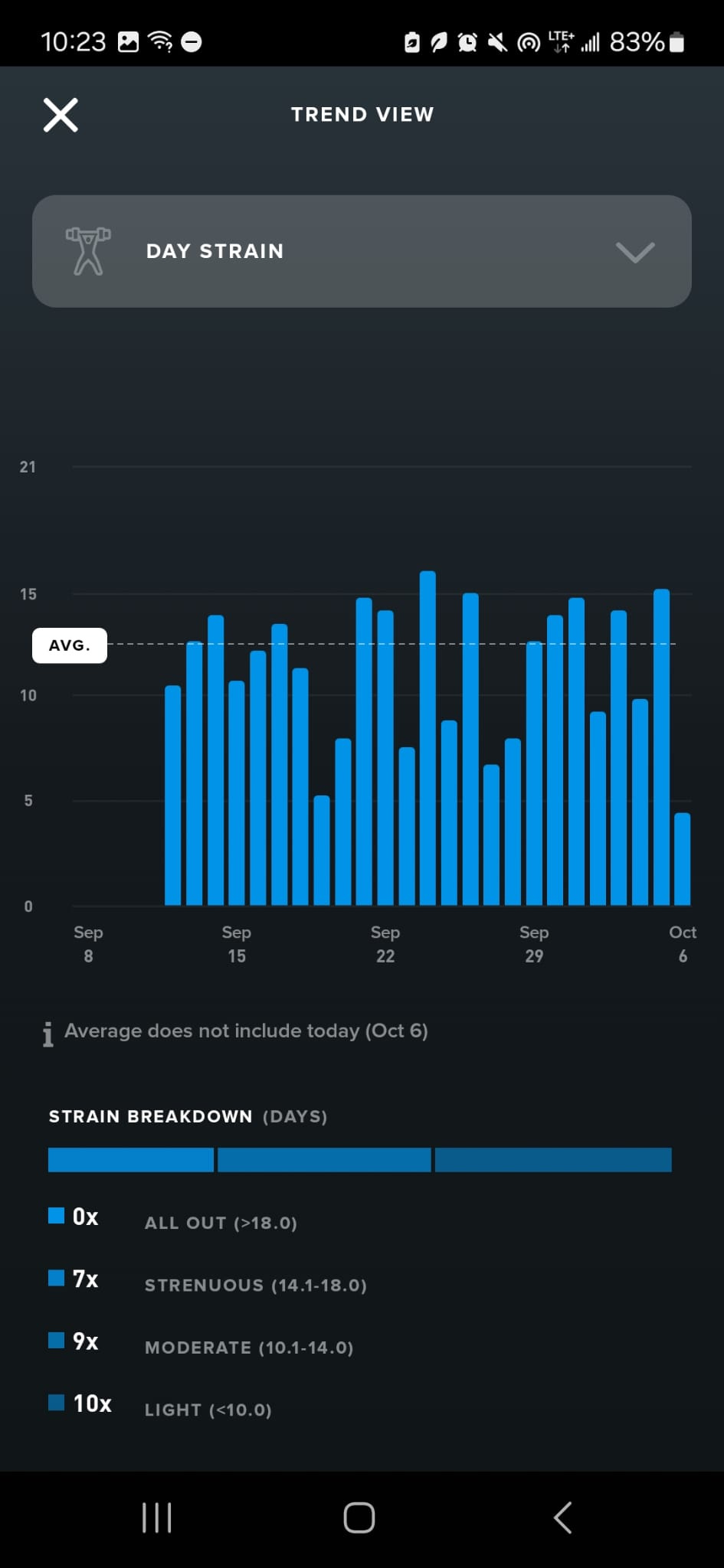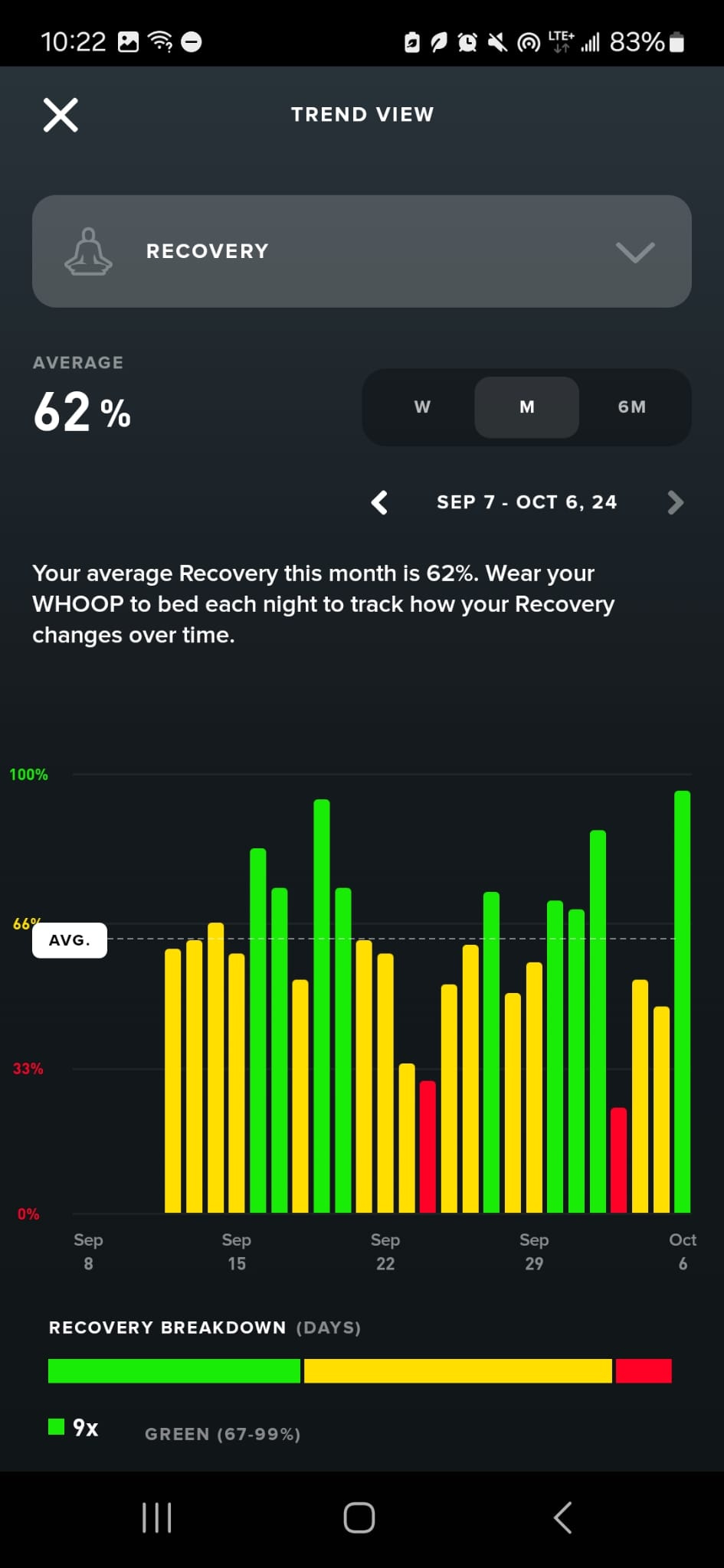I Wore A WHOOP For A Month, And This Is What I Learned.
Spoiler alert: It's some SUPER surprising facts and metrics!
Wellies!
Before you slam me with the H-word (hypocrite!) because I’m not really a fan of wearables, I want to preface this with the information that my data fitness tracker was a free trial. I was doing some fall cleaning and came across my old WHOOP, and decided to investigate what the company has to offer.
The WHOOP wearable device is a fitness and health tracker designed to monitor key metrics such as heart rate, heart rate variability, sleep, and recovery. It provides insights into daily strain and recovery, so you can optimize workout intensity and rest periods. WHOOP tracks sleep stages and quality, monitors daily activities (to understand how lifestyle choices impact overall performance). The device pairs with an app that provides personalized analytics and feedback for continuous health and fitness improvement.
It’s like Apple watch on steroids.
Strain tracking: cardiovascular load is measured throughout the day by tracking heart rate and activity levels. It calculates a daily strain score based on how much stress your body has endured.
Sleep: it tracks sleep stages (light, deep, and REM sleep) and provides a sleep performance score. It also gives personalized recommendations for sleep duration based on the previous day's strain and other factors, such as your recovery status.
Recovery assessment: the daily recovery score is based on metrics like heart rate variability (HRV), resting heart rate (RHR), and respiratory rate. It helps give you an idea of your exercise readiness.
Health monitoring: it keeps track of respiratory rate, skin temperature, and blood oxygen levels which help give early warnings for illness or stress and monitor general wellness trends over time.
Data Analytics & coaching: you get detailed insights and personalized coaching based on trends in strain, sleep, and recovery. You also get a weekly and monthly performance report so you can see/adjust your habits to improve overall health and performance.
Biggest drawback: it’s $320 per YEAR to subscribe, or $40 per month. Ick. Fortunately they have a free trial for their 4.0 device technology: pay for shipping ($20) and you can use it for a month. If you don’t like it, send it back and you’re done.
This was the key feature because I don’t need a pulse (lol) on my metrics for a year, I just wanted to get a snapshot overview of what my life is like at full-tilt: school, full-on fitness routine, socializing, walking, outside time, yoga, karate, stress, etc.
I wore it for September (and October - they “extended” my free trial before I cancelled).
The biggest take away:
I don’t sleep enough!
Go freaking figure. The queen of sleep advocacy doesn’t sleep enough.
There’s more, too. I have a lot of room for improvement in lots of different metrics. I won’t bore you with the analytics of each photo, but the gist is:
I’m pretty consistent with sleep performance (which means my sleep is good quality)
I don’t sleep enough (high sleep debt). My bedtime should be around 9:30 to be asleep from 10-6. My performance and recovery are best when I make those choices.
I need way more sleep than what I thought! 7 hours was just enough to scrape by, even though I thought I was doing great.
Non active stress isn’t so bad! Having a good job that I’m happy at really is making a difference, too.
My recovery sucks! My worst recovery numbers are on days I have added sugar and don’t sleep well. Shocker (not!) but I didn’t know it was THAT poor.
What I’m wondering
(And the changes I’m going to make)
Will my body composition reflect better sleep? IE, will my puffiness, inflammation, and insulin sensitivity change with a lower sleep debt?
How my body will react to more strain at the gym. As I start to lift heavier again, how will my stress and recovery metrics change?
How can I get to sleep earlier and still train later in the evening (most karate classes end around 8:30 and I don’t get home until 9 at the earliest)? Will I need to start incorporating more CBD and THC oil at night?
How will my appetite change with more sleep?
What I noticed
I don’t push as hard as I could because I’m afraid of jacking my cortisol too high.
Work isn’t nearly as stressful this year, so I have some wiggle room to add daily strain in fitness.
I have to manage my inner IBSC part that is obsessed with data retrieval and telling me I’m not doing enough, I’m not fit enough, I eat too much blah blah blah. They’re jerks, we know this. I mostly let them yammer on in the background and don’t listen.
Stay tuned for my follow up post! I have a few more weeks to go with the WHOOP.
Love ya,
xoxoxo


